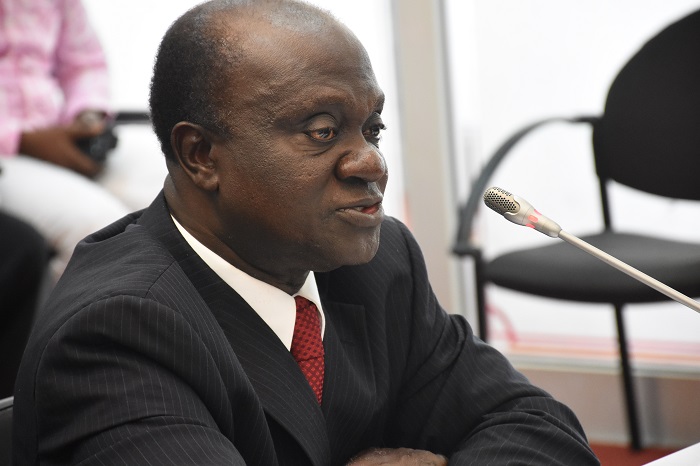
‘Govt may revert to four-year SHS if...’
The government may revert the duration of senior high school (SHS) education from the current three years to four if it is proven that the four-year duration offers better quality education.
The Minister of Planning, Professor George Gyan-Baffuor, who dropped the hint, said the government would study the results of the current system for two years before taking a definite decision on whether to stick to the three years or revert to four years.
He was speaking in Accra on Wednesday at the presentation of the 2016 Ghana Social Development Outlook (GSDO) produced by the Social Division of the Institute of Statistical, Social and Economic Research (ISSER) of the University of Ghana, Legon.
A piece of secondary information in the report indicated that students who went through SHS in four years performed better in the final examination than those who did it in three years.
It also indicated that the four-year duration allowed students to transit well in the system than the three-year period.
Quality is the key
Prof. Gyan-Baffuor, who was answering a question as to whether the government would revert to the four-year system, said the concentration of the government now was to make sure that SHS students were given sufficient tuition within the current three years.
However, he said, if after that experiment it turned out that the four-year SHS was better in terms of offering students quality education, the government would solicit public opinion on the need to revert to the four-year system.
“What we are trying to do now is to make sure that three years is, indeed, three years, because in the past what we realised was that three years was actually two years and a few months.
“So we will make sure that three years is actually three years. We have to make up for lost time. That is the first thing we will do now and then based on evidence, determine whether we are going three or four years,” he said.
Prof. Gyan-Baffuor said the premise of the whole free SHS education policy was that “money should not be an obstruction to the education of our children”.
“If it is found out that four years is better than three years to train our children, then money should not be the basis for denying them that privilege,” he said.
Prof. Gyan-Baffuor indicated that the free SHS education policy was not only about access but also quality and, therefore, any decision that would improve the quality of education would be taken on board.
SHS education duration palaver
The Kufuor administration extended the duration of SHS from three to four years as part of the 2007 educational reforms arising out of the work carried out by the Prof. Anamuah-Mensah Committee.
The Mills administration, on assumption of office in 2009, reverted to three years.
Ghana Social Development Outlook (GSDO)
The GSDO examines the progress, prospects and challenges of social development in Ghana and offers policy prescriptions across various social sectors.
Presenting the outlook, a Senior Research Fellow at the ISSER, Dr Nana Akua Anyidoho, said findings in the report indicated that more students dropped out of school as they progressed from basic education to the tertiary level.
She said the dropout rate was higher among girls as they moved up the educational ladder.
The report recommended that more attention be given to girls’ education to ensure equity and again called for actions to attract more students to tertiary education.
On health, it revealed that there was improvement in maternal and child health in the country but indicated that there was inequality in the distribution of healthcare services.
It called for reforms of the National Health Insurance Scheme (NHIS) to meet the health needs of Ghanaians.
The report found out that 11 per cent of Ghanaians did not have access to quality drinking water, while 85 per cent did not have access to improved sanitation facilities.
It suggested the enforcement of the regulation that required landowners to include toilet facilities in their homes.
On housing, the report said many people lived in indecent houses and on streets due to the lack of adequate houses.
It said landlords continued to demand one to four-year rent advance in spite of the existence of the Rent Act which limits the rent advance to six months.
It said the economy was growing but it was not generating the needed jobs and indicated that agriculture was no longer the major source of employment for many Ghanaians.
On governance, the report called for the passage of the Right to Information Bill and the Conduct of Public Officers Bill.
